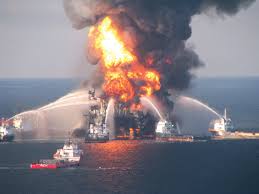
On April 20, 2010, an explosion on British Petroleum’s Deepwater Horizon oil rig in the Gulf of Mexico caused the largest marine oil spill in history. Nearly 2 million gallons of chemical dispersants were deployed in the Gulf in an attempt to dissipate the spill. Following the Exxon Valdez oil spill in Prince William Sound on March 24, 1989, approximately 45,000 gallons of chemical dispersants were sprayed into the coastal and marine environment. Dispersants are proprietary chemical mixtures of industrial solvents and other substances. Research has demonstrated that dispersants make the oil more toxic and cause long-term harm to marine life and the health of oil spill workers, fishers, and local community members. Yet, EPA has not met its legal obligations under the Clean Water Act to properly regulate these chemical dispersants and to prevent their devastating effects. Organizations and individuals based in Alaska and Louisiana, represented by the Environmental Law Clinic at the University of California Berkeley (UC Berkeley) and the Center for Biological Diversity, filed a lawsuit in federal court to compel the EPA to more strictly regulate chemical dispersants during oil spills and to achieve updated regulations that are necessary to protect marine life, oil spill response workers and coastal communities.
Join us on Wednesday April 29th for the next Alaska Collaborative on Health and Environment (CHE-AK) call entitled More Harm than Good: New Science, Legal Actions, and Policy on Oil Spill Dispersants. Our featured speakers include Claudia Polsky JD, the founding Director of the Environmental Law Clinic at UC Berkeley, and Rosemary Ahtuangaruak an Inupiat scholar, health professional and former mayor of Nuiqsut. The speakers will discuss the science around these chemicals and their motivation to file this suit. The plaintiffs in the lawsuit include Alaska Community Action on Toxics, Cook Inletkeeper, Earth Island Institute’s A.L.E.R.T. project, commercial fisher Kindra Arnesen, and Rosemary Ahtuangaruak of Nuiqsut.
Featured Speakers
Claudia Polsky JD, the founding Director of the Environmental Law Clinic at UC Berkeley
Rosemary Ahtuangaruak, an Inupiat scholar, health professional and former mayor of Nuiqsut
This call will be hosted by the CHE-Alaska Partnership, which is coordinated by Alaska Community Action on Toxics (ACAT). It will last for 60 minutes and will be recorded for the call and webinar archive.
